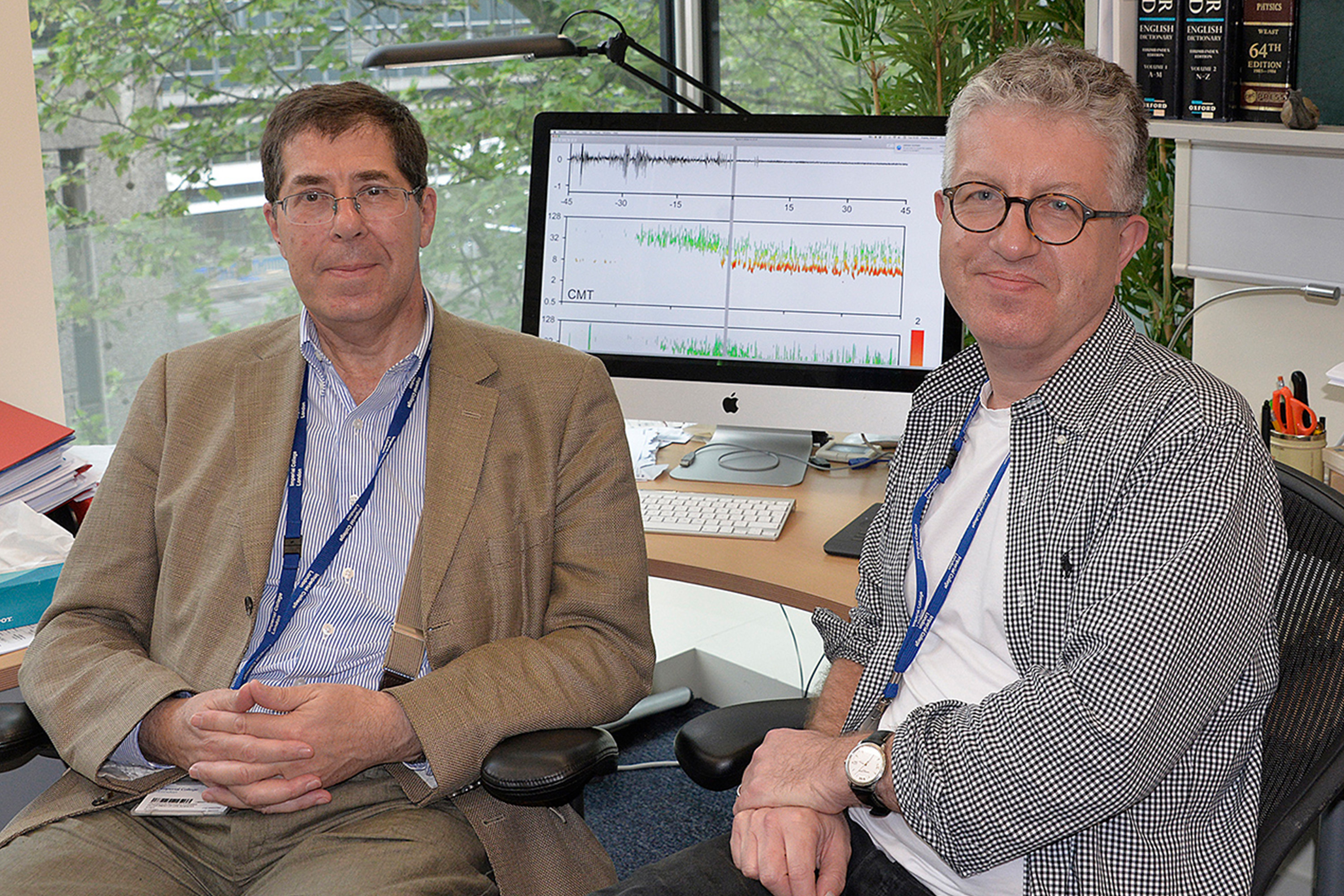Sleep is the brain’s way of tidying up, right? Actually... wrong.
Words: Peter Taylor-Whiffen
Context
 How does sleep actually work? We know it’s essential – protecting physical and mental health, benefiting the heart, boosting the immune system and consolidating memories – but understanding exactly how it works has proved problematic. We do know that sleep recharges us and that without it, we suffer. And scientists have also long believed that fundamental to all this cranial housekeeping is that when we sleep, our brain clears itself of toxins. But two Imperial researchers have surprisingly discovered… it doesn’t.
How does sleep actually work? We know it’s essential – protecting physical and mental health, benefiting the heart, boosting the immune system and consolidating memories – but understanding exactly how it works has proved problematic. We do know that sleep recharges us and that without it, we suffer. And scientists have also long believed that fundamental to all this cranial housekeeping is that when we sleep, our brain clears itself of toxins. But two Imperial researchers have surprisingly discovered… it doesn’t.
Background
While the exact biological purpose of sleep has eluded scientists, received wisdom for the past ten years has subscribed to a theory known as the ‘washing machine hypothesis’ – that the sleeping brain flushes out toxins and metabolites such as amyloid-beta to prevent an excessive build-up that can result in Alzheimer’s disease.
But Nick Franks, Professor of Biophysics and Anaesthetics, and Professor Bill Wisden, Chair in Molecular Neuroscience and interim director of the UK Dementia Research Institute, were sceptical. “The idea that the brain would suddenly speed things up and clear toxins and metabolites during a sleep state, when we know perfectly well most things slow down, seemed intriguing,” says Franks. “We decided to put it to the test.”
Method
Previous research involved injecting a tracer (a fluorescent dye) into the cerebral spinal fluid that surrounds the brain and seeing how quickly it moved into the brain. But, says Franks, the scientists wrongly assumed that this automatically showed them how much fluid – toxins, for example – moved out. “The problem was that only a fraction of the tracer injected into the cerebral spinal fluid actually entered the brain – so assuming that this was a good surrogate for how much leaves the brain was unconvincing.”
For their experiment, instead of injecting dye into the fluid, Franks and Wisden injected dye directly into brain tissue. Three hours later, they measured how much was still there, and how much had moved to other parts of the brain.
Results
The pair were shocked by the new measurements. “Contrary to previous studies, we found that less toxin and metabolite was cleared during sleep, not more,” says Franks. “Around 30 per cent less in sleeping mice and 50 per cent less in mice under anaesthetic.” And the activity accelerated when the mice began to wake up. “The toxins cleared in a waking state, not a sleeping state,” he added. “That makes sense and if this study had been the first, I don’t think anyone would have been surprised. Our initial assumption was that we must have made a mistake, but after months of checking, we believe we haven’t.”
Outcome
The results will leave the field having to re-evaluate its theories on why we sleep and may bring closer an understanding of the link between sleep and dementia – something the pair will continue to explore in subsequent research. “Disrupted sleep is commonly experienced by people living with dementia, although we don’t know if this is a driver of the condition or a consequence of having it,” says Wisden. “It may turn out that having good sleep does help reduce dementia for reasons other than clearing toxins.”
The effects of sleep on brain clearance
By studying (A) the average fluorescent intensity of an injected dye across brain slices and (B) the concentration for three states of vigilance (wake, sleep and KET-XYL anaesthesia), Franks and Wisden concluded that brain clearance is reduced during sleep and anaesthesia, challenging the idea that the core function of sleep is to clear toxins from the brain.

To find out more, visit: franks-wisden-lab.org